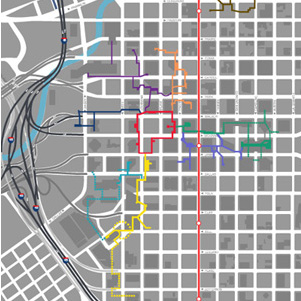Mega Events and Mobility: the impacts on the quality of the urban environment
Abstract
According both to the relevant transformations and to the potential impacts on the natural resources induced by the Olympic Games in the hosting cities, in the last fifteen years many efforts have been undertaken by the International Olympic Committee to promote sustainable principles within Olympic Games and to guarantee a positive and durable legacy to the hosting cities, contributing also to the improvement of the quality of urban environment. Nevertheless, the increasing diffusion of terms such as Green Olympics o Sustainable Olympics risk to become just a new “brand” for promoting the hosting cities in the global competition arena instead of being translated in effective tools for driving choices and interventions. Hence, based on the comparison among some past and future Olympic cities, the relevance and the main outcomes of the policies aimed at promoting sustainability have been examined, mainly focusing on that ones able to encourage a sustainable urban mobility. The latter in fact, still dominated by the private cars, is at present largely recognized as one of the main causes of the decreasing quality of the urban environment and, in the meanwhile, the increase of the demand for mobility, highly concentrated in time and space, is one of the most relevant issue in the Olympic Games’ organization. Finally, grounding on current tendencies, some guidelines for re-addressing urban mobility policies towards sustainability in case of Mega-Events have been outlined.Downloads

Copyright (c) 2014 Tema. Journal of Land Use, Mobility and Environment

This work is licensed under a Creative Commons Attribution 4.0 International License.
Authors who publish in this journal agree to the following:
1. Authors retain the rights to their work and give in to the journal the right of first publication of the work simultaneously licensed under a Creative Commons License - Attribution that allows others to share the work indicating the authorship and the initial publication in this journal.
2. Authors can adhere to other agreements of non-exclusive license for the distribution of the published version of the work (ex. To deposit it in an institutional repository or to publish it in a monography), provided to indicate that the document was first published in this journal.
3. Authors can distribute their work online (ex. In institutional repositories or in their website) prior to and during the submission process, as it can lead to productive exchanges and it can increase the quotations of the published work (See The Effect of Open Access)
